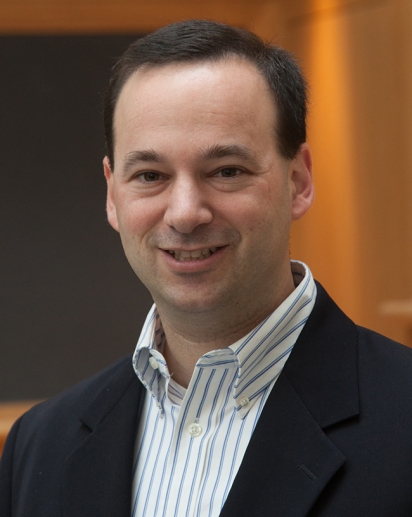Social Entrepreneurship Bootcamp With Professor Andrew Samwick
Economics Professor Andrew Samwick has dedicated his career to studying social entrepreneurship. On Sunday, he’ll participate in a DartUP workshop focused on social innovation.

Andrew Samwick believes that entrepreneurial endeavors don’t need to choose between commercial viability and making a positive impact.
“The lesson of social entrepreneurship is that it is possible to generate benefits for society through commercial activity, without relying exclusively on the public or non-profit sectors,” says Samwick, the Sandra L. and Arthur L. Irving ‘72a, P’10 Professor of Economics and Chair of the Department of Economics at Dartmouth College.
On Sunday afternoon (November 7) Samwick will share his expertise in social entrepreneurship with graduate and undergraduate students during a DartUP Entrepreneurship Bootcamp event. The in-person event, taking place from 1-3 p.m., will introduce students to strategies for managing a social entrepreneurial venture.
Samwick has a very specific concept of what social entrepreneurship is.
“I define a social enterprise as a commercial activity in which the social benefits are high relative to the private benefits or that raises the purchasing power of the poor, and that is sustained predominantly without explicit, ongoing third-party funding,” he says.
Social entrepreneurs might balance their obligations differently from other entrepreneurs, he adds.
"All ventures have to balance value creation – creating something good for society – with value capture – to sustain their enterprise financially,” Samwick says. “A ‘good’ social entrepreneur maximizes value creation while needing to capture only a little for herself.”
For a social venture to be successful, an entrepreneur must create something that is desired by the people it benefits; it must be feasible to produce, financially viable, and beneficial to society as a whole.
While many entrepreneurs are focused on maximizing profits, social entrepreneurs often prioritize directing their money toward beneficiaries, rather than investors. What that looks like is different for each company.
“This is a choice that all social entrepreneurs have to make for themselves,” Samwick says.
On Sunday, he’ll discuss how to structure and manage a socially-conscious startup.
“I hope that people who attend on Sunday will come out of the session with a greater appreciation of the challenges and opportunities for creating value for society through for-profit entities,” he says. “If you are interested in doing so, I hope to see you there!”
Click here to sign up for Sunday’s DartUP Entrepreneurship Bootcamp. Find more information on DartUP, including an upcoming social entrepreneurship startup competition, here.

